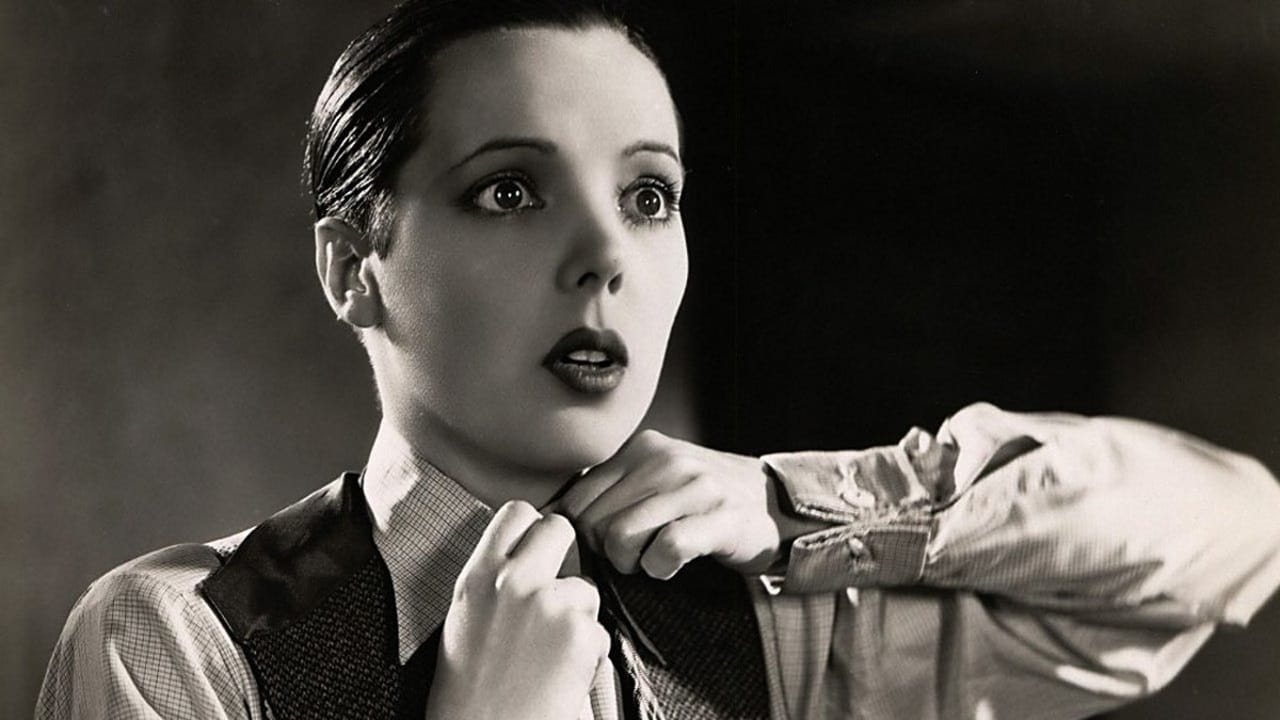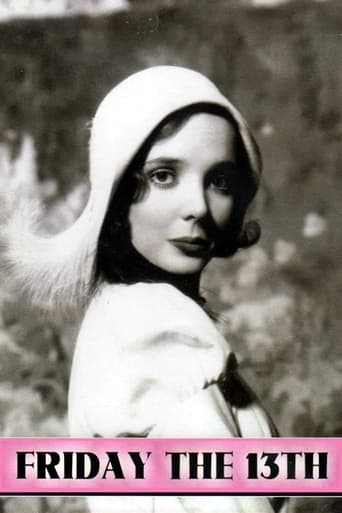LouHomey
From my favorite movies..
SparkMore
n my opinion it was a great movie with some interesting elements, even though having some plot holes and the ending probably was just too messy and crammed together, but still fun to watch and not your casual movie that is similar to all other ones.
Guillelmina
The film's masterful storytelling did its job. The message was clear. No need to overdo.
Raymond Sierra
The film may be flawed, but its message is not.
robert-temple-1
This film is a splendid achievement, weaving together satisfactorily as it does the stories of a group of people preceding their coming together one fatal evening on a London Number 134 bus. The evening is that of Friday the thirteenth, and disaster occurs, as lightning strikes a crane and causes it to come crashing down onto the bus. Two people are killed, but we are not allowed to know which two until the end of the film's multiple flashbacks. Numerous well known actors of the period appear in this ensemble drama. One character, a slippery and unctuous crook named Blake who 'lives by his wits', is superbly played by Emlyn Williams, who also wrote the electric and crackling dialogue for this film. The wit and quickness of the complex dialogue helps to give this film a much deeper dimension. The young female lead is played by Jessie Matthews, who is as charming as her audience at the time would have expected, considering how popular she was then, and indeed deserved to be. The film is wonderfully directed by Victor Saville. He had already worked with Matthews and would do so again, as he would with Emlyn Williams the following year. The multi-stories are really well-structured and take place in a variety of locations. This gives us a treat, for we are able to see many areas of London as they were in 1932. I noticed for instance that the price of a payphone call at that time was only tuppence. And on the bus itself, someone asks for 'a penny ticket' but then realizes he has been robbed of all his money before boarding the bus, so Emlyn Williams, feeling flush after a blackmail payoff, holds up a single copper and gives it to the bus conductor. Yes, bus conductors! And how we miss them! They were always good for a laugh and some banter, as well as useful advice on which was really the best stop, and how to change, and how long everything would take. I am only surprised that bus conductors, although long gone, have not also been replaced by call centres in India so that people are asked on their mobile phones to press 1, 2, 3, or 4, for their travel advice nowadays, since humans have gone out of fashion. There are many fine performances in the film, such as by Ralph Richardson and Max Miller the music hall comedian. We see extensive shots of the old Caledonian Market at its original site off Caledonian Road in Islington, which closed when the Second World War began. (After the War it reopened at Bermondsey.) There is indeed a great deal to see of Pre-War London, and a great deal to enjoy from a very fine film.
Charlot47
No need to praise this little gem, as previous reviewers have done so already. There is a nicely democratic air about the piece, looking at a wide range of people going about their daily lives. We see the hardworking souls at the bottom of the heap such as the stall-holder in the street market, the bus crew at the depot (and at the races), attendants at the Turkish baths, office workers, teachers and entertainers. Then there are the more parodic pictures of idler, stupider and richer folk.Not only does the film draw you into the lives of the people on the bus up to the moment of the crash, but it also gives you resolutions for the problems they were facing. For example, the chorus girl realises she was foolish to head for the lecherous agent's flat and that she'll be better off marrying her dull but loving schoolmaster. Also, the two deaths are in fact blessings. One is undeserved, but it means that the victim never knows the unfaithful wife he loves has left him, even though the faithful dog waiting for him in the empty home tears our hearts. The other is richly deserved, ridding the earth of a useless villain, despite him doing a good deed seconds before he dies, and freeing his victims to marry in peace. Matrimony is celebrated, despite its flaws, as the great social cement. Extra-marital sex, whether achieved or just wished for, is corrosive (yet all the behind the scenes shots of the chorus girls, while titillating, are fun.) And I must have a juvenile sense of humour because I found Jessie Matthew's posh voice discussing knickers hilarious.
writers_reign
Journeyman director Victor Saville has turned out an excellent programmer here with fine ensemble playing from some of the top names in British stage and screen at the time. In most cases they're just building on their 'image' so that Max Miller is a fast-talking con man, Robertson Hare a bumbling innocent abroad and Jessie Matthews a pert chorus girl etc but somehow Saville gets the blend to work. Emlyn William's screenplay calls for a bus full of passengers to crash on the inauspicious day of the title and two of the cast to perish and then we flashback to their individual stories and just what led them to take this particular bus. Pleasant diversion.
rod-76
This film has an excellent premise and is really crying out to be turned into a Hollywood blockbuster. As I recall (and it's a few years since I've seen the film) the action starts with a London omnibus filled with people. There is an horrific crash and one passenger dies. The rest of the film is then told in flashback, with 13 characters who were on the bus getting their recent lives explored in intricate detail. At the end of the film we return to the crash and find out which of these chirpy, vivid characters has met a gruesome end. Great stuff, a little like a good tabloid news story fleshed out in precise, even handed detail. If only it were available on video...

